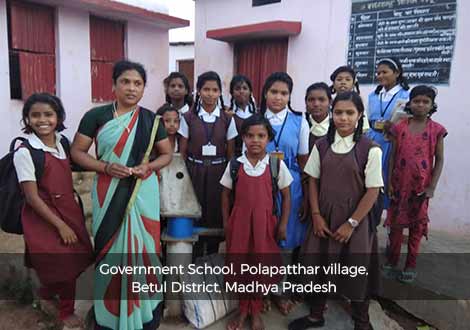Murky to Sparkling Water in School
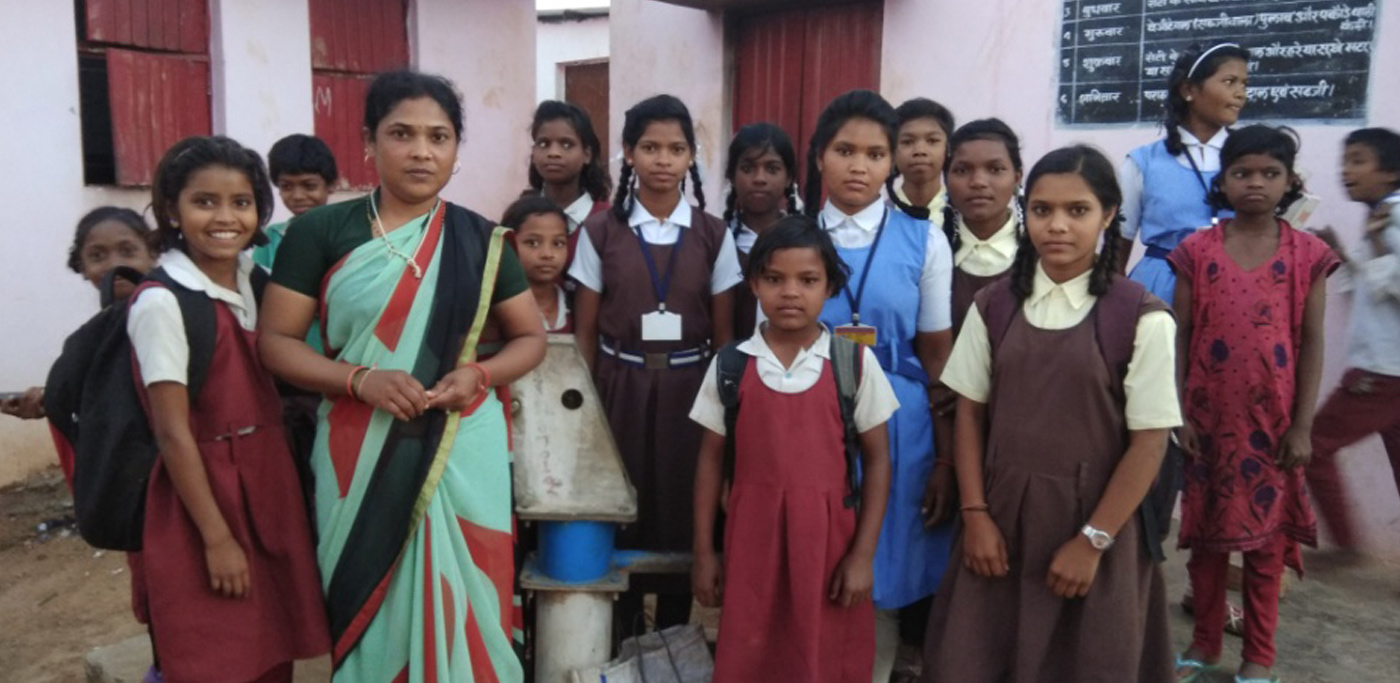
“What is your business with the school hand pumps? Let the parents worry about what their children drink.” her visibly irritated father-in-law remarked.
Rashmi’s children were already adults and students in the school were unrelated to her. Yet she could not reconcile the fact that they were forced to drink contaminated water in school every day. The spark to change in Rashmi had been lit some months back in the trainings on citizenship.
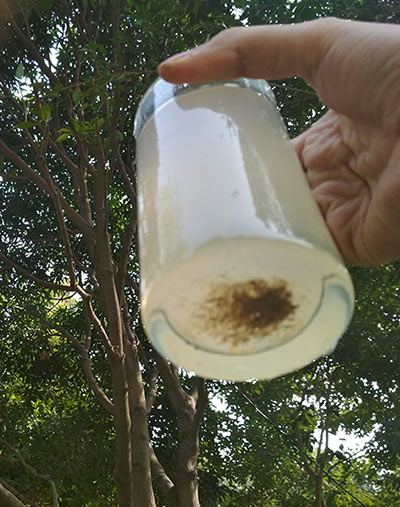
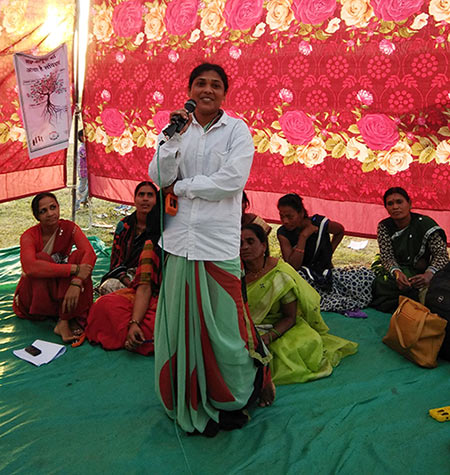
When Rashmi joined the Muskan Self Help Group (SHG) promoted by PRADAN, she had little idea about rights and entitlements under the constitution of India, let alone the concept of citizenship. The larger Narmada SHG-federation*, of which Muskan group is a part, has been actively pursuing the agenda of rights and responsibilities of citizens by introducing them to the Constitution of India, its provisions and the concept of citizenship. Rashmi is an active member of a citizenship-cohort which raises awareness on grassroot governance in the villages of Betul district of Madhya Pradesh. This cohort is given systematic training on the Constitution, fundamental rights and citizenship. Despite facing backlash from many quarters, these women have engaged with various stakeholders with selfless persistence demanding action to address issues inflicting the poor. They also train other women of SHGs on the constitution and rights.
When Rashmi discovered that school children in her village (Polapatthar) are forced to consume contaminated water, she decided to act.
Supported by SHG members, she flagged the issue in Gram Sabha (village council) for two years. With no progress, the women registered a complaint at the block office, some 20 kilometers away. There was still no headway and the SHG members traveled all the way to the district town office in Betul to engage with higher government officials.
She was assured quick action. Though hand pumps were repaired, not a drop of clean water came out. Rashmi was persistent and she filed an online grievance. She included all the relevant articles and provisions of the Constitution, putting into practice everything she learnt in her trainings!
Within 2 weeks, officials from the Public Health Department reached the school and repaired the hand pumps. Clean water now flows in two of the three-hand pumps.
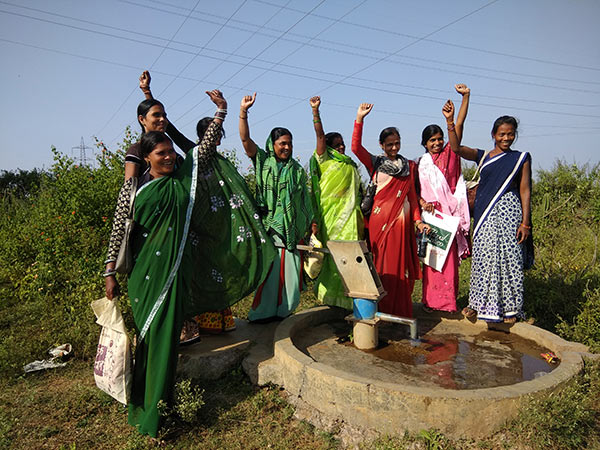
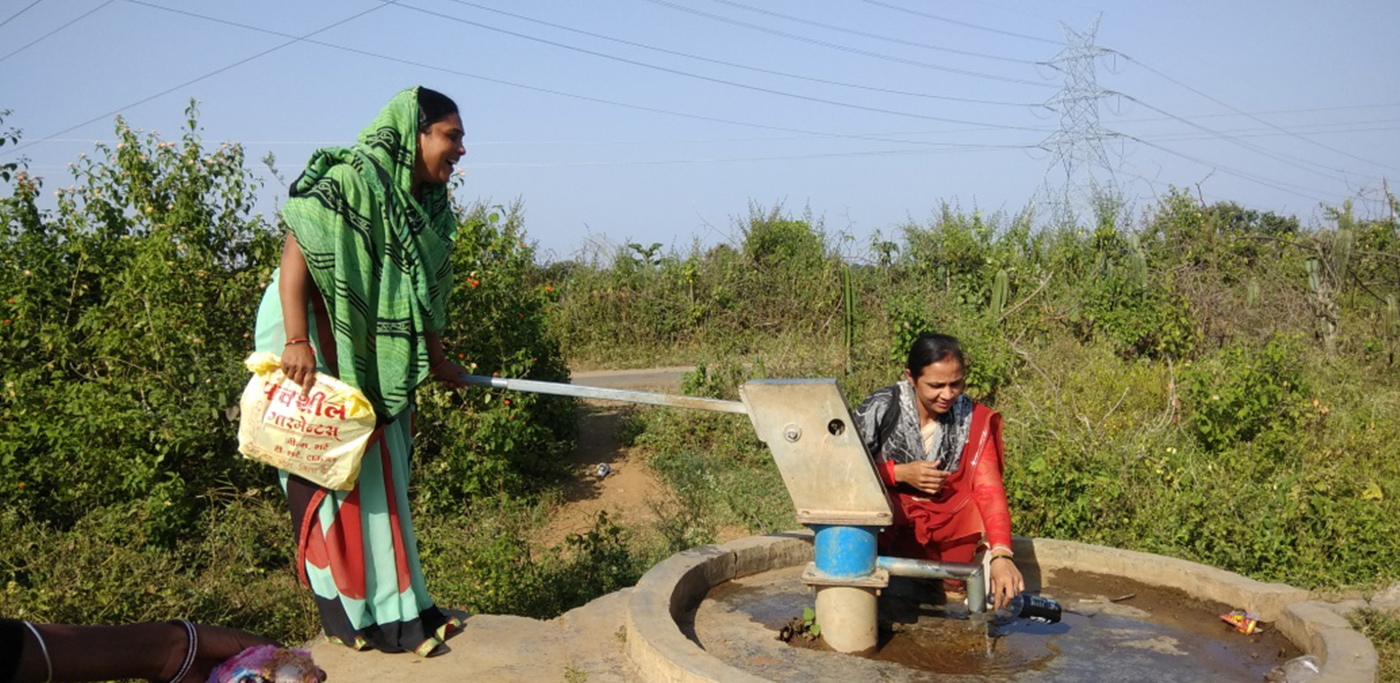
But Rashmi is adamant. She says she won’t close the online complaint until the third-hand pump is clear and usable!
The WaterAid report on “State of the World’s Water 2017” presents a dismal picture for rural India: 63.4 million people living in villages are without access to clean water, the highest in the world. Poor water intake has a huge impact on the health of Indians and 1.5 million children are estimated to die of diarrhea alone. On the other hand, Article 47 of the Indian constitution has given priority to the provision of clean drinking water.
Thousands of SHGs in rural India are today at the forefront to bring about change in the way grassroots governance functions, in the true spirit of India constitution. It is only through empowering change agents like Rashmi and women of Muskan SHG that India can move in the direction of a just and equitable society.
* SHG-federation is the larger umbrella of Self Help Groups. SHGs in a particular geography are affiliated to the federation. The governing board of the federation comprises of women from marginalized communities who are members of SHGs. PRADAN supports the day to day management of the federation (SHGs) until they can function independently on their own.


